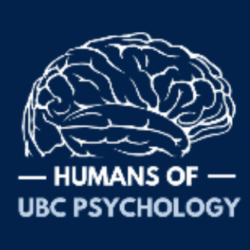By: Diana Bratu and Z. Aazadeh Raja
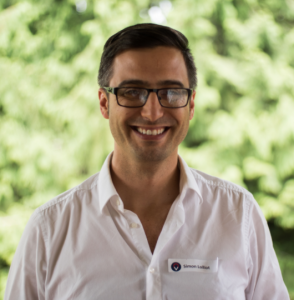
How did you get into psychology and what did your educational journey look like?
I was always interested in psychology, but I didn’t think that I had the grit; my grades weren’t good enough. I initially went into music, playing the saxophone, which I was pretty good at. I took introductory psychology courses in my first year and as I progressed I kept on taking additional higher level psychology courses. My grades steadily improved so I started considering becoming a clinical psychologist. For my honors degree in psychology I started looking at how I could combine my music background with my dream of becoming a therapist. I was looking at how group music could create a sense of community amongst HIV AIDS orphans. I applied for a master’s in clinical and counseling psychology, but I didn’t get it. In hopes to apply again I did a postgraduate certificate in education and I eventually applied for a Rhodes Scholarship. It was an opportunity to update my CV and get practice to apply for Masters again. Changing my entire trajectory I landed the Rhodes Scholarship. I went over to Oxford University where I worked with a researcher, Professor Mouse Houston, who is a giant in the social psychological field. Under him, my interests regarding ingroup and outgroup biases increased, which then turned into my PhD dissertation and how I ended up at UBC.
What school-managing advice would you pass on to your students?
While I was doing my PhD in Oxford, I suffered a massive burnout which kind of sent me into deep depression for six months.I physically could not work and I couldn’t help feeling useless and worthless. I saw a few different therapists and came across a meditation mindfulness practice that really helped me. I ruminated and catastrophized a lot which caused me to have a difficult time letting my thoughts go. Mindfulness consisted of focusing on my breathing and grounding myself in the presence. When those automatic thoughts would trigger I was aware of them and felt I could consciously let them go. It was incredibly freeing.
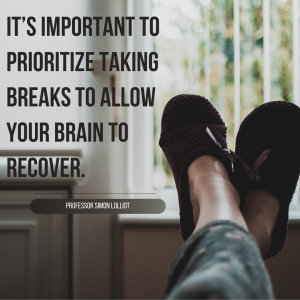
It’s important to prioritize taking breaks to allow your brain to recover. I recommend seeing friends and walking in forests; trees release a hormone that directly counteracts the release of cortisol. Protecting your sleep is vital. Be sensible and listen to your brain when it tells you you’re tired. Time off is as important as time on.
How would you recommend dealing with exam stress?
Performance on an exam can be taken as a reflection of your own self worth. So if you don’t do well, don’t take it as “I’m not that good.” Cognitive reappraisal is a good exercise to try and combat this mindset. Change your relationship with the stressor. For example, look at exams as an opportunity to see where you’re at. Anxiety feels very much like excitement in terms of the physiological reaction so if you can convince yourself during the midterm that you’re excited to take this midterm and you’re excited to show what you know, it leads to divergent thinking rather than convergent thinking and research actually shows that it doesn’t change your level of anxiety, but it does tend to improve your scores because it changes the way that you think.
How was it leading your first class?
My first class at Oxford I felt huge imposter syndrome, because here are intelligent students at one of the top universities in the world and I still see myself as this hairy legged village boy from South Africa who’s not the smartest. I was absolutely frightened. My first at UBC was a level up from teaching 80 students to around 400. My heart was pumping but I was very open with the class saying that this is my first time teaching to such a large audience and I’m going to be trying to figure a lot of stuff out. I asked the students to help me with this and they were so eager to help; giving feedback and with them on board as part of the team it was such an enriching experience. It was my most anxious class to give but it was also one of the funnest classes. If I made a mistake, I said, “Well that was a mistake,” then everyone has a good laugh If it works, and we’ve done something cool.
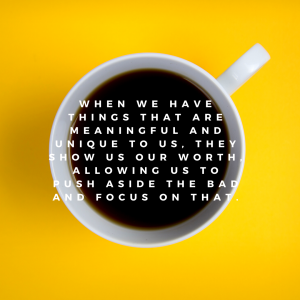
What would you say to students experiencing stereotype threat?
With Stereotype threat, it’s important to realize that many of the things we experience are contextually bound and often do not have anything to do with us. There’s this study that illustrates this example well. A study that was done on Asian females and exam performance found that when they highlighted their female identity, they were less likely to perform well on math exams than when they highlighted their Asian identity. This is due to the stereotypes that exist regarding females being bad at math or Asians being really good at math. If you’re repeatedly being told you are undervalued in a certain dimension, overtime you do start to internalize it. An exercise that is helpful to overcome this is a values affirmation exercise. This is where you write down a few things that are important to you and where you draw your strength from. When we have things that are meaningful and unique to us, they show us our worth, allowing us to push aside the bad and focus on that.
What does a typical week look like for you?
Waking around 5AM, playing and caring for my daughter from 6-9AM, my wife and I switch places and from 9-12AM I go off to lecture and afterwards we’ll all have lunch together. Then my daughter naps and at around 5 we’ll cook dinner as a family and hang out until she goes to sleep. I’ve recently taken on a personal trainer because of my dad and Covid pounds. My hobbies currently are playing board games; with my wife or online on this website, boardgamesarena.com with our other friends.
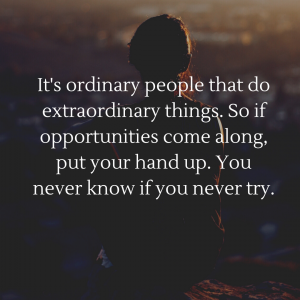
If you could change one thing from the course of your career, what would it be?
I wish I believed in myself sooner. One thing that going to Oxford taught me is that we see a whole bunch of people do extraordinary things. I’ve always considered myself to be an ordinary boy from someplace in Africa but that’s the thing. It’s ordinary people that do extraordinary things. So if opportunities come along, put your hand up. you never know if you never try. I wish I would have believed earlier that I was capable of great things. So put your hand up, volunteer, give it a shot. It doesn’t matter if you fail. Again, it’s not the mistake you make, It’s how you recover from it. Try again, put your hand up again. Do it again.
